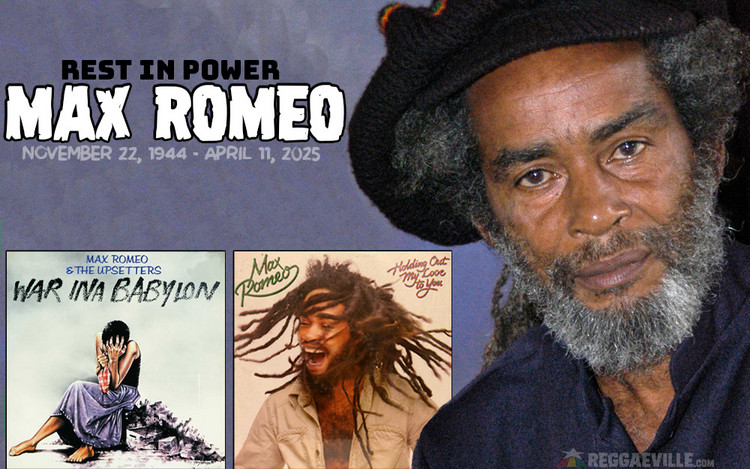IJahman Levi ADD
Ijahman Levi Interview | 1977 - Today (Part Two)
04/14/2025 by Angus Taylor
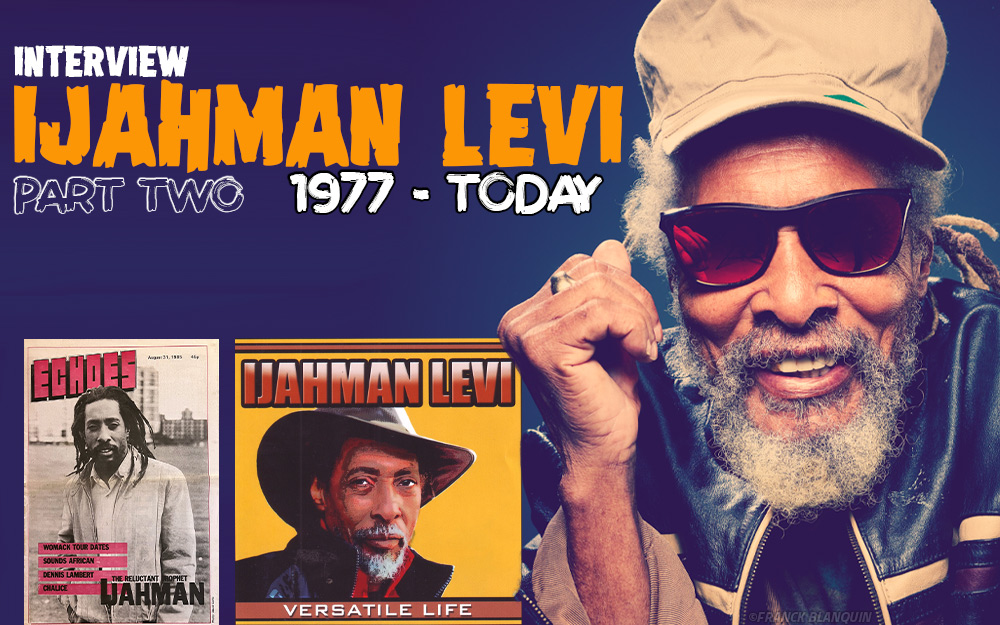
In Part 2 [read PART 1 here] of our interview with Ijahman Levi, he talks about his time at Island Records and why his association with Chris Blackwell came to an end. He also recounts how Eric Clapton nearly ended up playing on the Haile I Hymn album, and why he turned down the opportunity to work with Midnite, whose sound he may have influenced.
After the release of Jah Heavy Load and I’m A Levi on the Concrete Jungle and Lucky labels (1976), and Chariot Of Love on the Organisation label (1977), Chris Blackwell re-entered your life?
That's when Chris Blackwell came back into the picture. Chris Blackwell heard the song Jah Heavy Load and he wanted it. I think he contacted Dennis Harris regarding Jah Heavy Load but I think there was some dispute where money is concerned. Maybe Mr Harris wanted too much money. I do not know the transaction. But Chris Blackwell sent out a message to get me. So that's how a gentleman from Trinidad who used to work at Island, said to me one day “IJahman I'm making an album for Rico. And I've got a track here and I think you could work with it” [the album Man From Wareika in 1976]. That track was Africa. (laughs) Listen man, you're taking me way back. Anyhow, I say okay so I went in the studio with Rico and his musicians, and I play the track Africa. I took my version too and they asked me “This is the track that I want you to sing on”. And I create my guide, my style, whatever it is, to that track Africa because it's my song.
Then one day the same gentleman said to me “Chris Blackwell wants to see you”. So I went to see him. And remember now this is the second time I'm going to see this man in my life. The first time I saw him was in Jamaica. Then I left and went to England. Anyway when he came into his office, I was next door to the office, and I was playing my guitar. And I was singing Jah Heavy Load. I was doing some kind of song on my guitar, but I was playing 12-string guitar. In my style, the way I play. So I saw this gentleman and I recognised him immediately. “Oh, that's Chris Blackwell”. He looked at me and he smiled, and he went into his office. And he sent for me. He said he loved the song Jah Heavy Load and can I do it for him? I said “Yes, I'm willing to do that. But I want to record in Jamaica”. That is what I wanted. “If you want the song, yeah no problem but I want to work in Jamaica”. He said “Okay, no problem”. He said “Who would you like to produce it with you?” At the time Geoffrey Chung was the artist producer. I know you know him! (laughs)
Now Generation.
Yeah, you're right. Geoffrey Chung was the artist producer at the time. So he got in contact with Geoffrey and they made the arrangement. I signed a contract with Chris Blackwell to do one song. The contract was for four singles. But the original one was Jah Heavy Load. So they worked out the arrangement and I remember I got £1,000 from Chris Blackwell to go to Jamaica to prepare myself. I think they bought the ticket. I didn't buy the ticket. While in Jamaica I met Geoffrey Chung. I don't know anything about the transaction or what money exchanged. I came to Jamaica and Geoffrey Chung was there and I was supposed to make four singles. But the main song was Jah Heavy Load.
So we went to the studio and it was the inspiration of the almighty God. The works that I did or what Father is doing with me. Because it's always his will. I'm willing but it's his power and his will. So I went to the studio and instead of making one single I made 11 tracks. It's mysterious, you know? I can look back at it now, the spiritual side of life and everything. At the time you're not thinking about that because you're just telling yourself you're on the right track but we can't see the mysterious works around at that time. And we ended up even in America. Where I get the opportunity, God bless him he died now, to work with man like Eric Gayle. The guitarist.
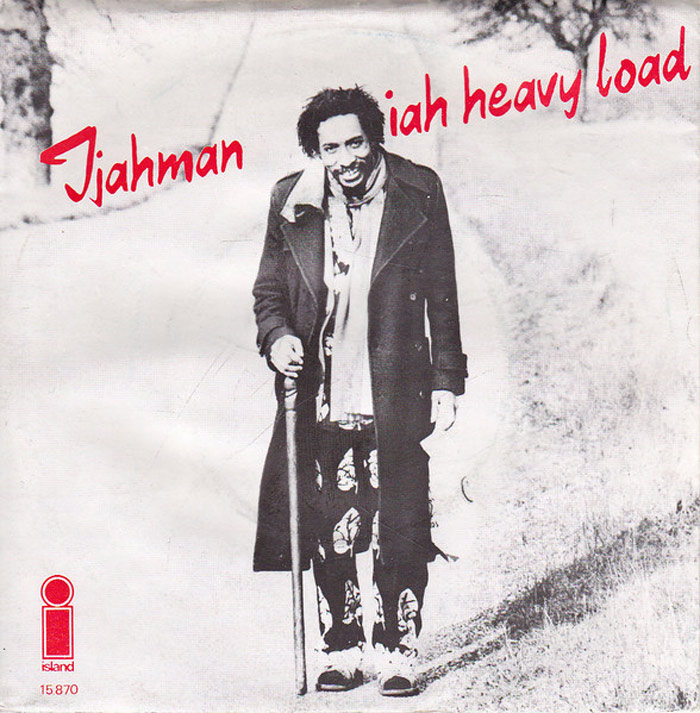
He worked with Joe Higgs too. On his Life Of Contradiction LP.
Wow, wow. It's an experience, oh God. It was a joy, man! (laughs) And of course I'm loving America. This is an American studio. Everything in America is just… you know what I'm talking about. So I did the song Two Sides Of Love, and I got Eric Gayle to play on Moulding. All this idea was Geoffrey, not me. I had nothing to do with that. What I was there to do was sing the song, choose the song that I want to sing and I love to lay my bass. Because I'm an artist who create melody from bass. If it's even just in my mind, the bass is there. If you play another bassline to what I have in my mind, it just cannot work. So the bassline was my direction. Geoffrey Chung the producer, he was the one who did all the money for what is to be done. He's the one that came to America, he's the one that book the studio, he's the one that got the musicians Sly and Robbie and all those, and get it done. So wonderful.
But when we came back from America after laying down Two Sides Of Love and the overdub on Moulding, we came back to Jamaica and it's time for me to go back to London. Because I'm on my return ticket. And Geoffrey Chung he wasn't doing anything wrong but at the time it looked to me that he was doing things wrong. It's time for me to go back to London and I want to go back with my tape. Well, to be honest it doesn't really work that way but I can't help it, that's the way it works with me! I am taking my tape back to London. I'm not waiting for him to come with my tape when he is ready. I just know the deadline is supposed to be the first of this month on my return ticket, and I'm going back to England and I want my tape. So it took a couple of weeks for him to get the understanding because he didn't want to give me the tapes.
I can remember one day, that last time I saw him, I went to his home and I didn't make noise because I'm not that kind of person but I speak out spiritually, the truth. And I want my tape. And I got very emotional that day. And his mother saw the reaction of me and said to him “Give that young man his tape. And let him get along on his way.”. And Geoffrey came and he gave me the tapes, God bless him. He gave me the tapes and I jump on the plane and I went to head for England. Later I heard he died. It is this mysterious thing in Jah movements. It's all around you but it will take time for you to acknowledge that these are the works of the almighty God. It's not your works. You're just an instrument. But Jah is doing his work and Jah will use you to be the instrument. Sir Geoffrey Chung I must say is a wonderful producer, he is really the one that is putting most of the energy and effort into those two albums.
One big session. Two albums.
Yeah, man. It's mystic man. Those things just happen! Brother, I'm telling you man. As you said, one session, two albums is mystic man. Because I went to Jamaica to do four singles and at the end I came out with 11 tracks! Two albums! At the time we were not thinking about albums. We were talking about tracks. So anyhow, when I went back to London I went to Island to hand over the tape and they said no they don't want the tape yet. They are not ready for it yet. I just keep the tape and when they are ready they can call me. So alright, I went back to my home with all the tapes with me.
One day again now I get the message that Island is ready for me. I went back to Island and they asked for the tapes and they asked who is going to finish producing the album. Well, I think I have the knowledge at the time because I'm a quick learner. And Geoffrey Chung is a brilliant producer and arranger. Of course I got my idea because I'm the writer for all my songs so I've got my ideas also. But he is number one. He's the one that was leading the way. So now I have to do it for myself, so I have to just get it done.
So I went to the studio, and the world doesn't even know this. One day I was in the studio, Chris Blackwell sent him, because he was supposed to play on my album, this guitarist Eric Clapton. He came on the day when I was overdubbing some tracks, Jah No Secret. Eric was supposed to play on that track and he did play on that track. The world doesn't know about this, it's just I know. And the tape is there. And Universal have also got the tape. It's a long story!
So are you saying that Eric Clapton played on Jah No Secret uncredited?
No, he came to play on it… no, no he did play on it. But I didn't like his version. (laughs) So I got John Kpiaye because he is the one that played the original Jah Heavy Load, you know?
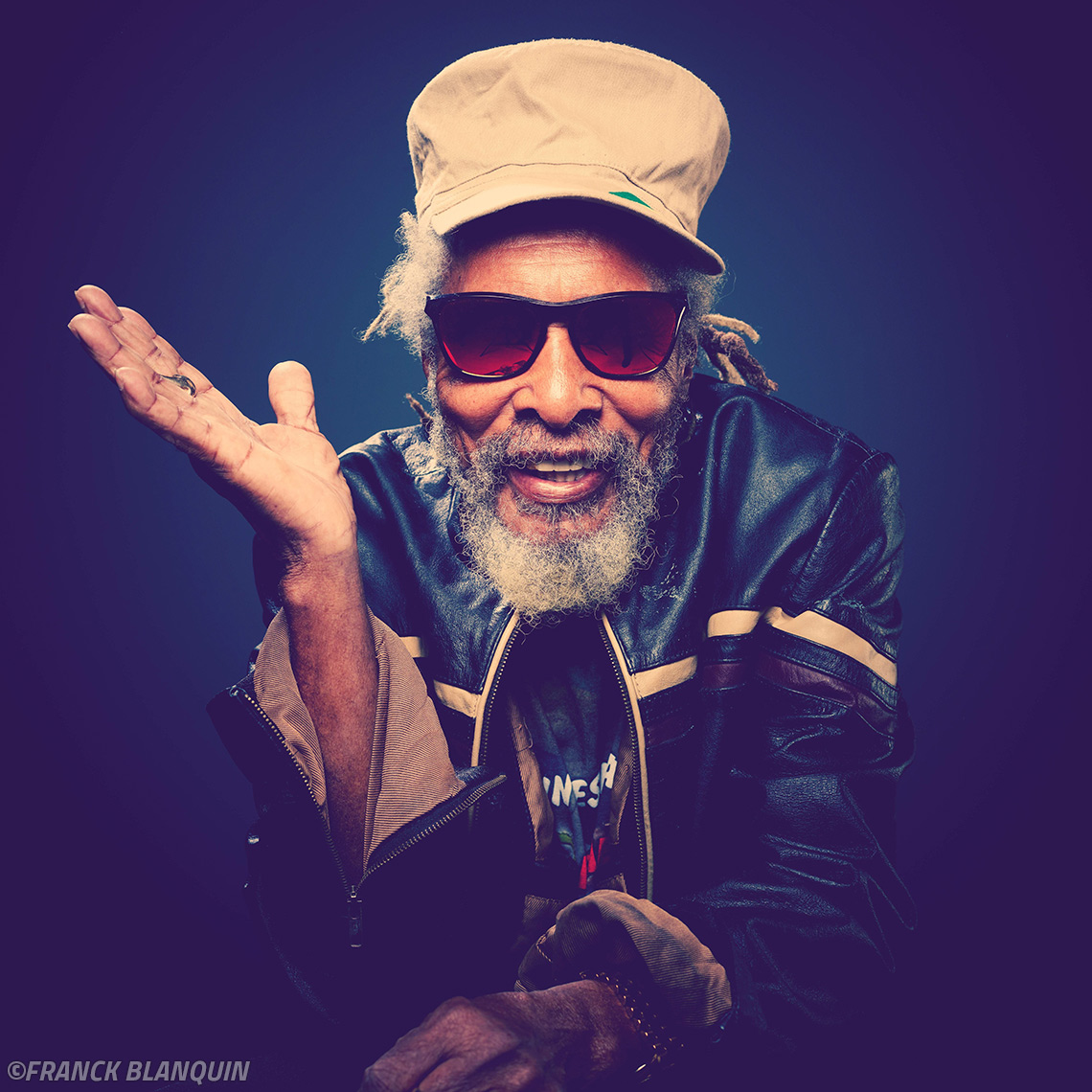
Who else played on the first three singles you did with Dennis Harris?
He is one of them. My brother, if you asked me that believe me, my brother, I couldn't tell you who they are.
Dennis Bovell? He used to work with John.
I know him. But he didn't play bass. There was a different person that played bass. And I remember the drummer, he is a Rastaman but I can't remember his name after so many years [Jah Bunny]. But John Kpiaye played on it and that's why, when it's time for me to lay down my version of Jah No Secret and I didn't like Eric Clapton's version, I got John Kpiaye to play that version. His version, Eric Clapton, was nice also but it was too much of a blues. And someone said to me why don't I release it? I don't have the tapes. The master tape is in London, it’s in Universal. But when I came back and decided to mix all the whole album, it wasn't my idea, I think this was Chris Blackwell's idea or Karl Pitterson's idea. Because the songs were so long that they turned it into two albums.
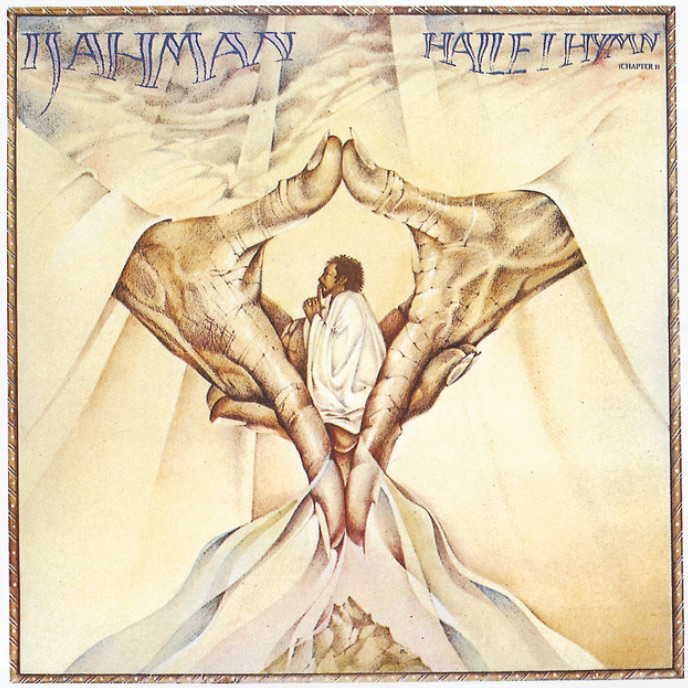
Whose idea was it for the songs to be so long?
Well I'm the writer.
So it was your idea? Because the two singles for DIP that got remade for the album were normal reggae single length. Historians have wondered whether Chris Blackwell could have been inspired by Van Morrison’s Astral Weeks.
Well, you see the songs that were written for the album like Jah Secret, it's such a long, long message. Zion Hut, it's such a long, long message, you understand me? So it wasn't planned, it was just actually happening. But when it reached Island now, they know what they're doing and they know that you can't do more than 20 minutes on one side or whatever.
So they decided to turn the 11 tracks into two albums.
Yeah, but I chose the songs. Because when I compile the first album the album had four tracks. The second album for Island had five tracks. So that was my plan at the time. It did work because the first album was four tracks and the second album was five tracks and if I did do a third album it would have six tracks. Because when you're young, you're crazy and this was my idea.
To have a progression in numbers of tracks per album.
Yeah, yeah. But the titles of the songs and how it's put together, all that is my idea because I know which song I want to put on what album. But the other ones that extended to a certain level, I would say either Chris Blackwell or Karl Pitterson because he's the one that mixed their version. Because I did make my version originally. After they gave me studio time and I did what is to be done, I mixed the album and I gave it to Island. That's why, if you can remember once there was Haile I Hymn Chapter 1 and you have Chapter 2. Chapter 1 is mixed by Chris Blackwell and Karl Pitterson. Chapter 2 is mixed by me. Because every instrument that is on it, I know where they are and who they are but Chris Blackwell and Peterson, they don't know. They just hear the music and they play what pleases them. Because you notice also the tracks them that I have that brass. And on Island’s version there's no brass there.
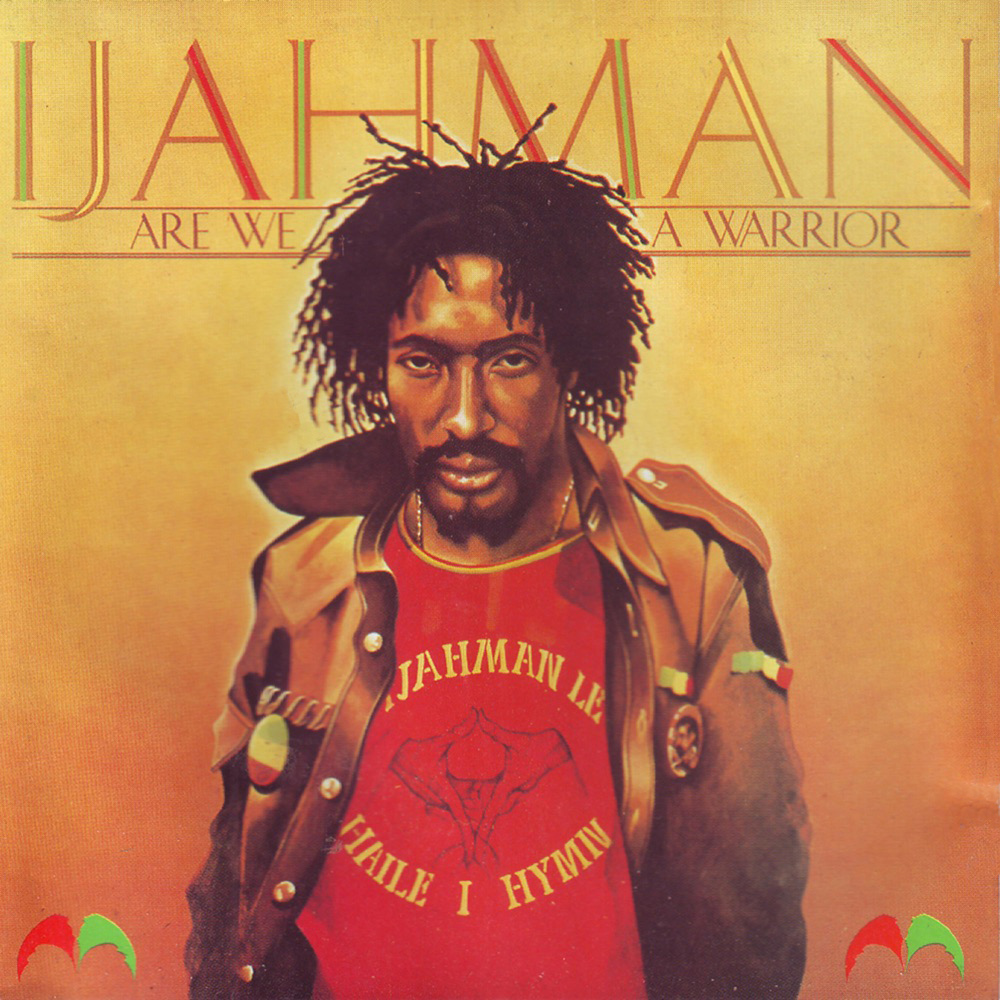
So it was you that wanted the French horn and the flugelhorn on I'm A Levi?
Right, right. And they take that away. Nevertheless that was that. That was my version. And I mixed my version. One day I was in Island. And in those times we used to record a lot on the two-track tape. And I love to record music, so normally I would go into Island and look in their dustbin. And pick up the tapes that they throw away. And go home and record back over them. I've got a lot of tapes here in Jamaica with me that I've done for all those years. So I'm picking up tapes when I was looking in the dustbin and I saw two tapes. Ijahman Levi Are We A Warrior and Haile I Hymn in the dustbin!
I said “My God, what is this?” So I just took up the tape like I took up other tapes and carried it home and said “Boy,” when I played back those two tracks, “Those are the two tapes that I recorded and mixed and left to Island to be released”. The same Haile I Hymn with all those brass and all those flutes and all those things. That was in the dustbin! So if you hear it how it was released again. Those are dustbin music! My versions I mixed. But Chris Blackwell and Karl Pitterson went to Compass Point, I think in Nassau, and they did his version and they released their version. My version wasn't released. So that's how come you have two different versions of the two albums. So after a while I decided to release my version because my version is the right version. So I did that and nobody ever questioned me. I don't know if they want to question me and I couldn't be found or what? So I just do what I want to do.
So why did you and Island part ways?
I can remember one day I was in Jamaica, after I laid down the tracks for Chris Blackwell. I was at his place at Strawberry Hill. There was a cabin there and Chris Blackwell said I could stay there. One day I got a letter from him or from Island saying “Well, I think we have done enough for you. Your record didn't sell or generate enough interest” or something like that and “We are releasing you from your contract”. And I “Must get out of the apartment that I am in when I'm ready”, something like that. So I just leave it at that and I get out of the apartment. I did the recording already and gave it to Island and I was in Jamaica.
One day, and this is in 1979 because Haile I Hymn was released in 1978, I was in Jamaica and I got a letter from Chris Blackwell that he is sending for me to come to Nassau. I don't know why he was sending for me. He just sent me a ticket and I must come to Nassau. So I'm at Sangster airport in Montego Bay where I see Jacob Miller. I haven't seen him in a long, long time and I say “Hail man, where are you going?” Jacob said “I'm going to Nassau”. I said “Oh, I'm going there too”. Anyway we sit down on the sidewalk of the airport and we burn a spliff. He and I share a spliff together.
And he was singing a song named Everything Is Great. But it started getting annoying to me because every second word that came out of his mouth “Everything Is Great”. So I have to say to him Jacob “Why are you coming on like that man? I know Everything Is Great but try and remember that the greatest one is the Almighty Jah Rastafari”. And he listened to me. We didn't quarrel because you couldn't quarrel but it was a bit annoying to me. But I didn't know at the time that it was a song that he had named Everything Is Great. And even up to this day I never heard the song. It's after a while that I realised that it's a song he had. So we jumped on the plane and we went to Nassau.
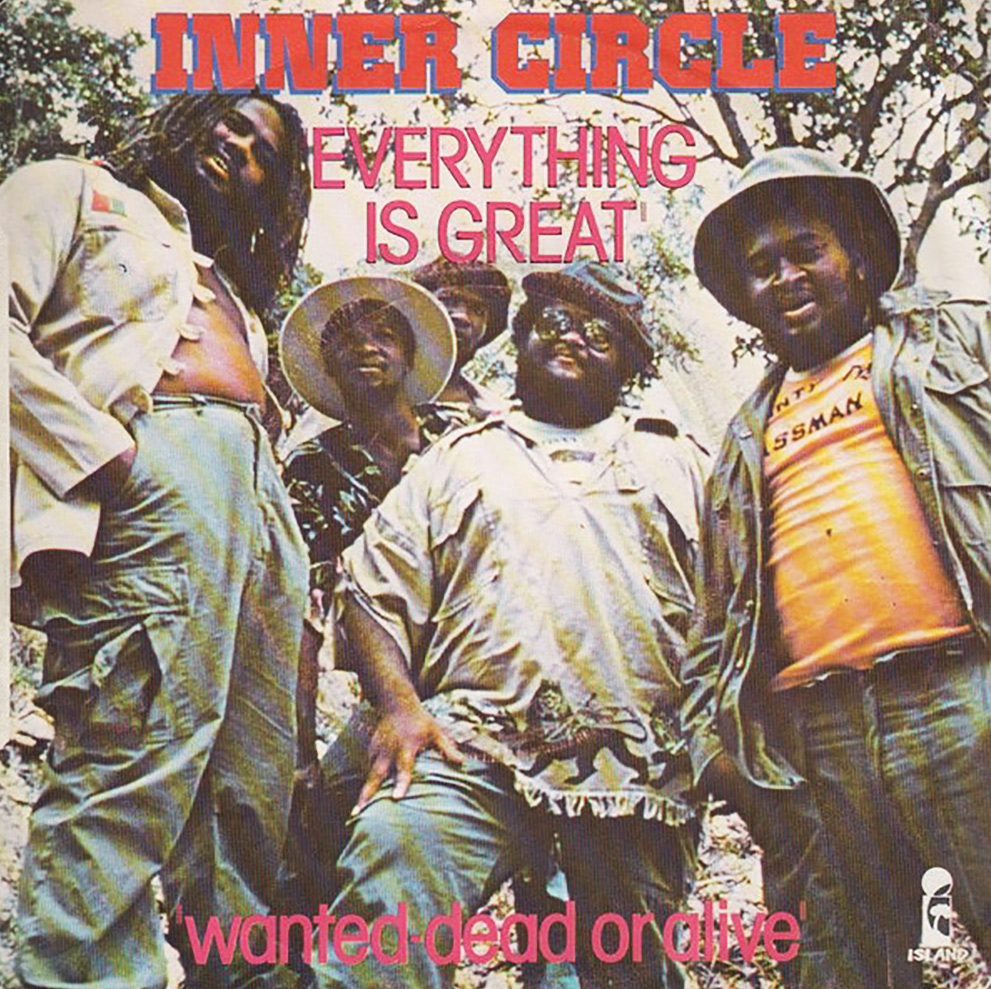
And that night Chris Blackwell kept a party, while we were in Nassau. I don't know what the party was all about. I don't know any system with recording company. When they're going to release something they always keep some party. I don't know who they're keeping the party for, if it's for the living or the dead. But they keep a party. Chris Blackwell was living there in Compass Point, at the time. So when I was in my hotel I was told that it's party time and I must come to the party. So when I went to the front door the spirit moves within me and said to me “Don't go in”. And when I push the door the first thing I see that struck me is a hog head on the table. And the spirit said to me “Don't go in”. And I turned back and I went back to my hotel. And I questioned myself while I was in the hotel. What is this? What's happening? This supposed to be a party and Rastaman no nyam pork and I no deal with hog and there's a hog head on the table? So that night I go to my bed and I did sleep but when I wake up early in the morning the spirit said to me “Go to Chris Blackwell and ask him what was that all about”.
I wake up early in the morning because I'm being moved by the spirit. When God is doing the work, you can't question that. So I just move and go over to Chris Blackwell's place around a mile away from the studio. His maid opened the door, and I see Chris Blackwell. And I said “Morning Mr Chris” and he said “Morning IJahman”. And that's the only word Chris Blackwell said to me in the time I was there. He was sitting around having his breakfast. I went in and said “Chris, what kind of thing that, man? How come you have hog head on your table and you invite Rastaman to your party?” I did question it. And he didn't say a word. I talked with him for at least half an hour. I wasn't disrespectful in no way. But I was on my spiritual level and I said to him “That no right. You can't have a party and have a hog's head and invite a Rastaman”.
Now remember this, I don't know that Jacob Miller was there. Because like I said, I didn't go into the party. But you’re Jacob Miller, you're a guest, you've been invited from Jamaica to come to my party. I dare say he is going to be at the party although I didn't see him. But he was at the party. But that day after talking to Chris Blackwell I watched him and [the spirit] said “Okay IJahman, you have said enough now. Get out of this man's place now”. And like I said he didn't say a word to me. Chris Blackwell was sit down and he was having his breakfast and I'm the one that was doing all the talking.
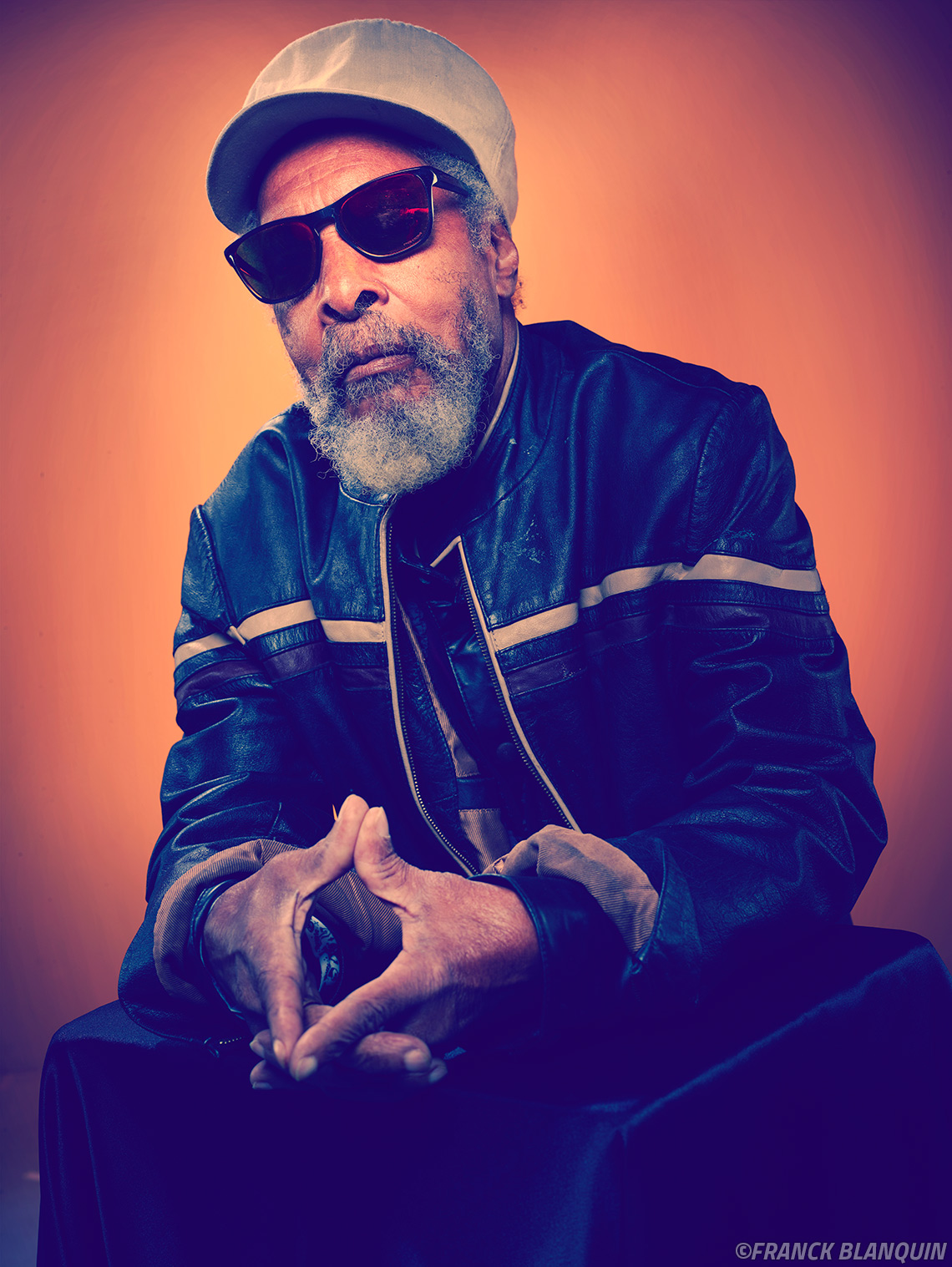
Anyway, that was the last time I see Chris Blackwell. I leave and the following day I jump on the plane from Nassau back to London. Then Moulding was released. They mix their version and they released it. I mixed my version but I didn't release it yet. I still have my version but theirs was internationally released. And like I said it has been over 50 years now since I did those two albums and I haven't received no royalty. But I am going to get mine. I'm going to be paid.
Because as you know Chris Blackwell sold and get his hundred million pounds for Island blah blah blah. So I'm a part of that industry also, because my two albums are there. So I played a very important part in Chris Blackwell movements. And I'm going to say to you that the two greatest albums that came out of Island from Jamaica is IJahman album Haile I Hymn and Are We A Warrior.
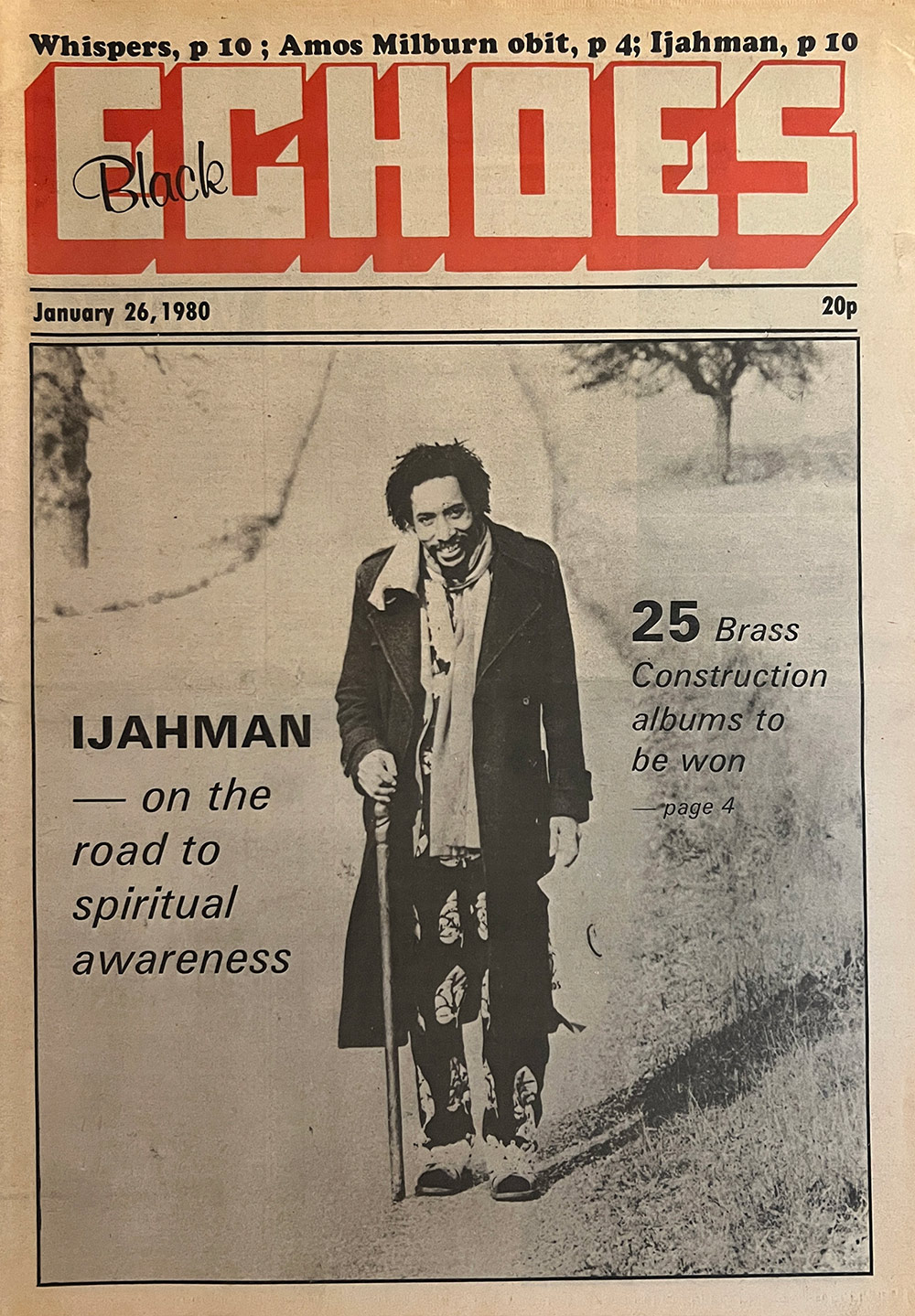
After you left Island you started your own label Jahmani and began creating your own albums, starting with 1982's Tell It To The Children where you went back to Jamaica to record.
After Island decided that we can't work together, I went. I'm ambitious. I'm a very ambitious person. So I'm going to help myself. I'm a Levi in the Bible and Genesis chapter 49 says Levi is a priest. Instruments of cruelty are in habitation. Oh my soul come not into their secret. In their anger they will slew a man. In their willpower, in their self-will they will dig down a war. I take that to mean that I'm a Levi. I’m ambitious, I'm going to do my own thing. So I put a label together, as you know Jahmani, my label. People call it Jahmani but I call it Jah Man I. Because I'm a Gemini. As in the sign. So instead of saying Gemini I say Jah Man I. But if people pronounce it as Jahmani OK. So I go to the studio. I was in Jamaica and decide to lay down some tracks and I laid down Tell It To The Children and do my things. Then I come back to London and I put out my first album Tell It To The Children, and even until this day I'm still telling it to the children and I give thanks. That album was supposed to release in South Africa but they wanted to take out Tell It To The Children.
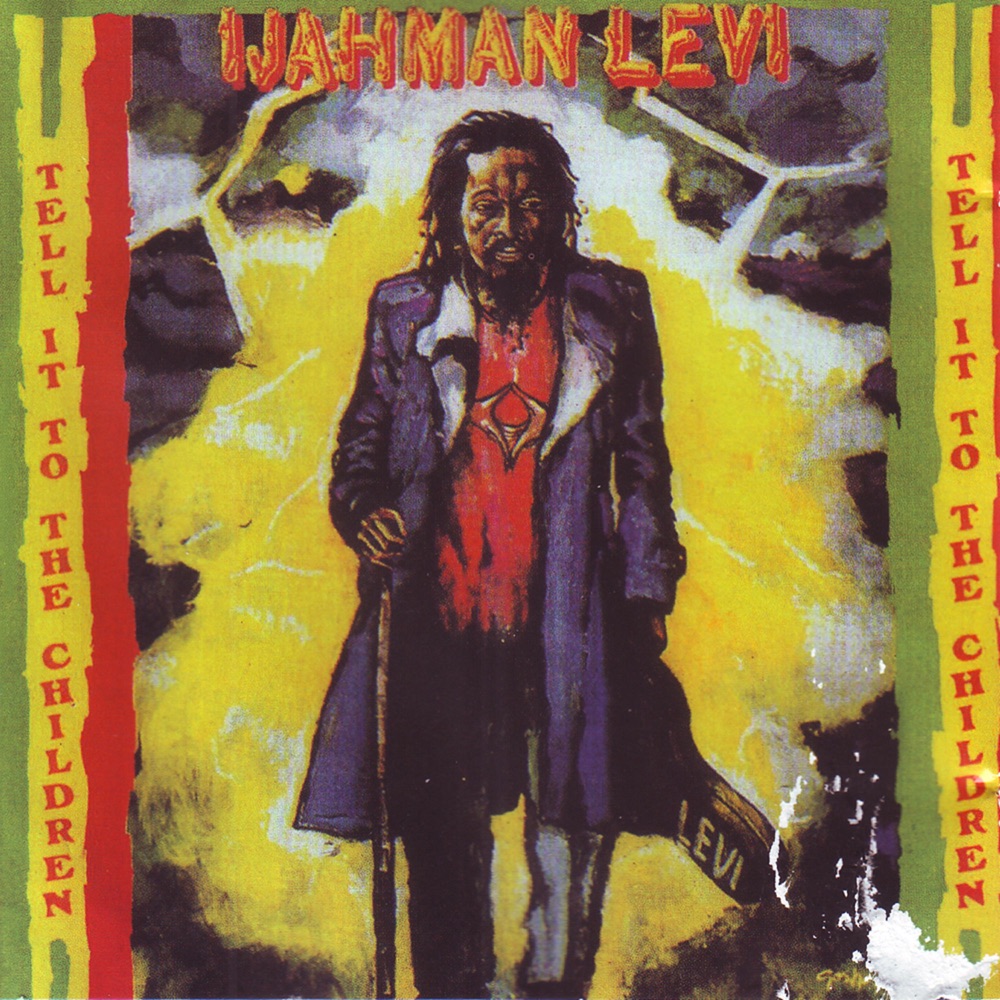
Because of what it is saying about colonial and racist teachings.
Right, right. I said “No. If you can't release the album as it is, leave it as it is”. I think by now it should be released there. I don't know. So I release that album. And then I think I create Africa after that. But I decided to do my own thing because I can help myself. I'm the one who's writing. I can produce. I can do that. I did it myself and I didn't depend on no one. I just do what is to be done. But I find at the time in the 80s the spirit really has me making music. I can look at it now and see why I was working so much at that time. Because I can see the results of it now. Because not many artists right now can say they have 20 or 30 albums that they own.
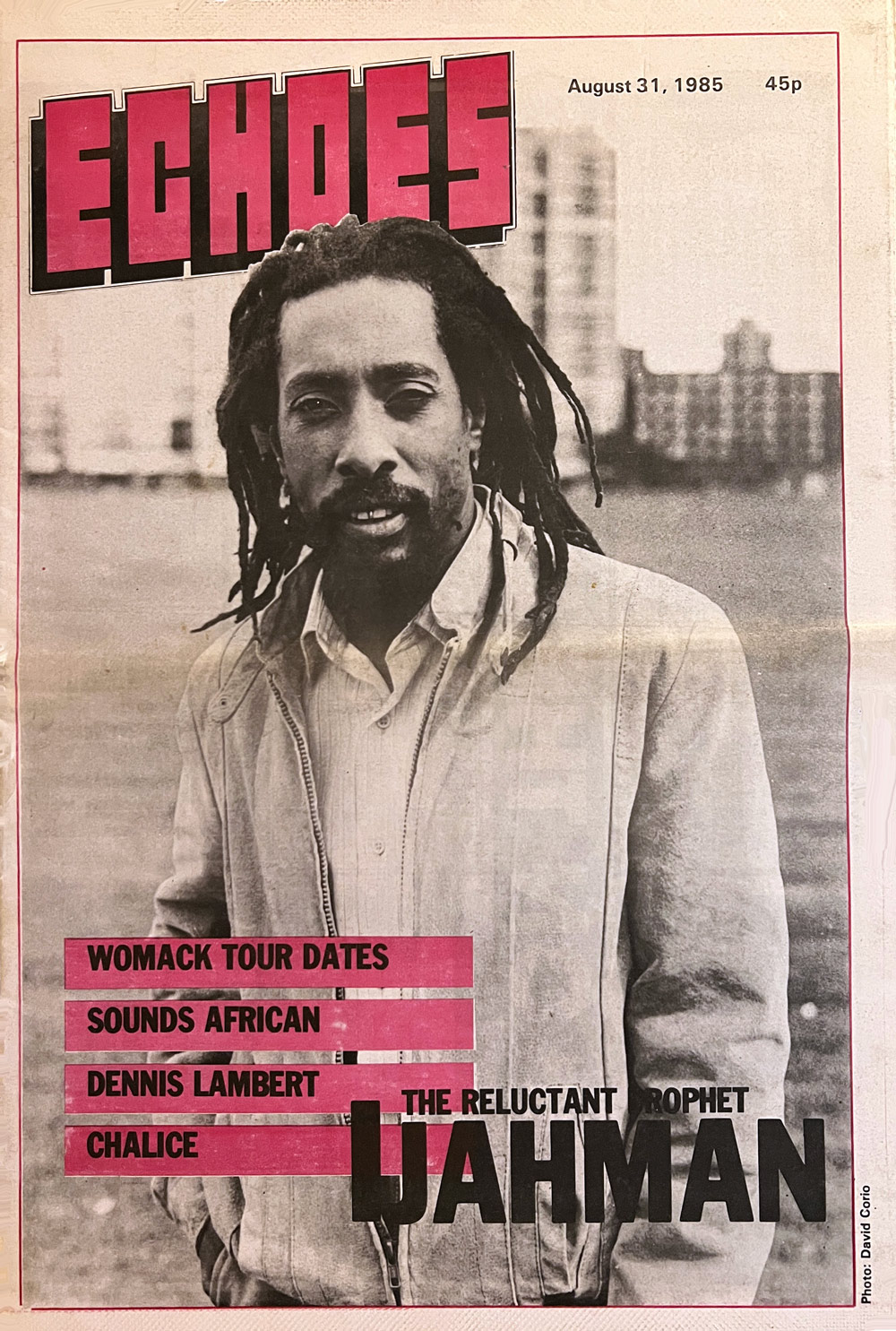
Sometimes in the 80s and 90s you were putting out two albums a year. That's a lot in reggae to make two albums in a year.
That's right. It's crazy! If I knew the business I wouldn't have done it but I didn't know the business. (laughs)
You just wanted to express yourself.
Right. And the message is coming to me. And I give thanks that Father gave me the willpower to get some funds to do what is to be done. So it must get done. Well, the last album I made was 2006 Versatile Life.
With Dubtonic Kru as the band.
Right. Because right now I'm not working. I'm also a pensioner by my age. So I get my little pension. But I'm still making a certain amount of money off of my publishing. Because I own my publishing. Remember now you asked me about publishing and all those things in those days in Jamaica. And I don't know about any of that. But when you come to England, this is the industry. You get to learn what is to be done. So what is publishing? You don't know the power of publishing but you know that you must protect it. So I form a company, my Tree Roots label, my Tree Roots publishing. I'm a very mean person when it comes to my songs. I don't write songs for people. People ask me to.
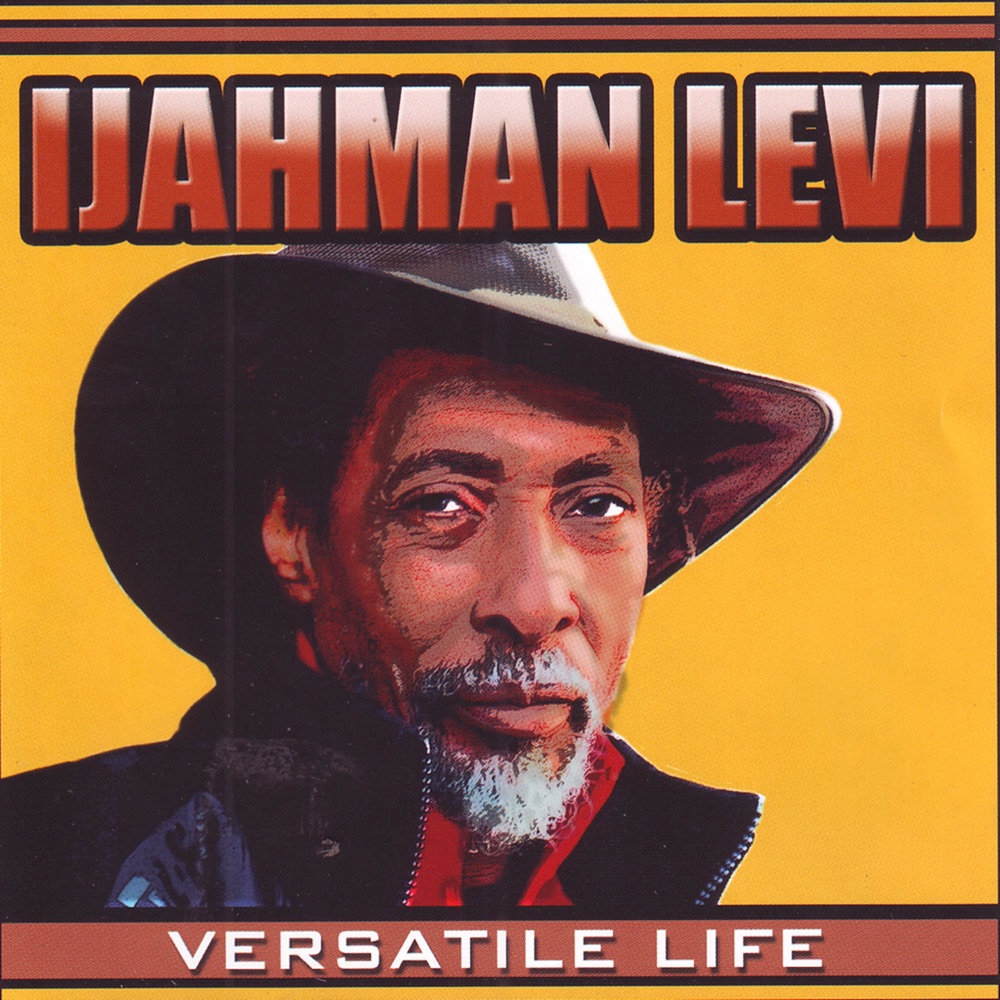
They ask if they can cover your songs?
I cannot do that. And nobody can ask me to cover one of their songs. I can't do that. To me I'm on the right track so I just record what I write. And sing what I write. I may end up having all these albums now and the greatest part of that is I am the owner. Including Haile I Hymn and Are We A Warrior, which Chris Blackwell have the tape or Universal have the tape. I am the owner. But for now I'm benefiting off all my albums that I've done. Because I'm a PRS member, I'm a PPL member, so every now and again I have to get my revenue just like other people. I may not be getting the right amount but I'm still thankful that I'm in the system and they can't forget me and I will always be paid. So I give thanks.
In that period from the mid 80s and until the late 90s one musician you worked with a lot is Steven Marley Wright. He played guitar on lots of your albums and went on tour with you too.
In that period yeah. He was born in England, you know? Nobody knows this, he was born in England but he was brought back to Jamaica. I'm the one that let him know England. Remember I have this hit I Do with my wife? So I brought him from Jamaica because he played on the album. I think it's 13 piece of musician from Jamaica. To do my concert in England. And it's all because I Do was a hit in England. So I get some funds. So I put on two shows, one in London at the Academy I think and also I booked the Odeon in Birmingham. So I brought all those bands, all those musicians to England. Well, some of them went back and some didn't. So Steven Wright is one of the ones that stayed. And when I was here in England, I put a band together and he was a part of my band until I decided to change my band and have a new set of musicians which I have now, which is my new guitarist Kubix.
From France.
Right. Great, great guitarist. And some other musicians them. But Steven he played a lot on my first albums back then.
And I want to ask about your wife Madge. You had this hit song I Do with her in 1985. After what you went through with your first wife Miss Beverly (which was a catalyst for your career), you were able to have more of a musical partnership with Madge.
Yes, you're talking about my second wife now. Which is Madge. Well, she went to her bed one night and she got a vision. That's how I Do comes about. She went to her bed and she got a vision with her father. From when her father was alive he always wanted to take her to various places to sing. He wanted his girl to sing. But it didn't materialise. Then he died and she got a vision from him and she said he said to her “Why don't you and Trevor sing a song of love and marriage?” She came into the room and she woke me up and she said “Trevor I just dreamed to see my father and he said you and I must sing a song of love and marriage. Do you have a song of love and marriage?”
I said “Yes, but when I wake up we will talk about that”. So she left me alone and I went back to my bed and I sleep. When I wake up now I'm able to vision what she's saying. I remembered that I wrote this song named I Do from when I was with Miss Beverly. But Miss Beverly cannot sing. So I just have that song there, you know? So we recorded I Do, I think in London because the musicians were there. And it surprised me that it became number one in England. (laughs) Again I don't get much off it because in those days you sell. I didn't really have a distributor like that. But the main person who did most of the selling again was Jetstar.
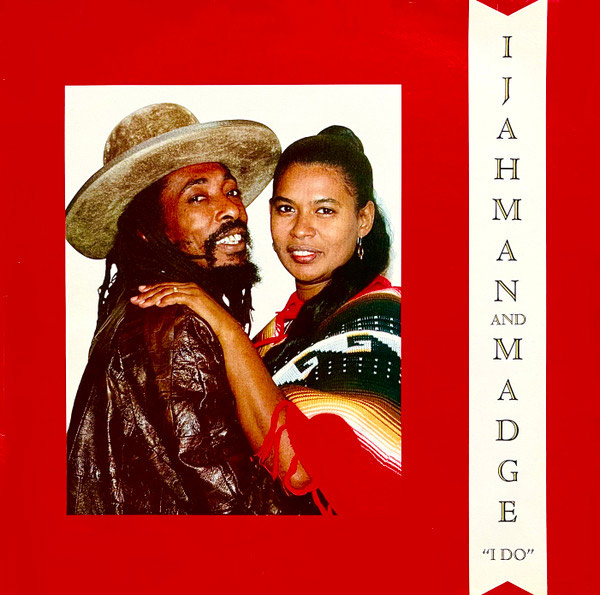
Mr Palmer again.
Right. And like I said in those times you still don't know much of the business. You make the music, you go to the shops, you sell it, you get paid and that is that. Then all of a sudden I realised little by little it's reached number 10, 5, number 1! Excitement! So that was that. By the way I must let you know that my wife is not Madge anymore. I got myself another wife. Another lady. The world don't know much about her yet. But little by little. She's the one who's taking care of this 79-year-old man right now, so I give thanks.
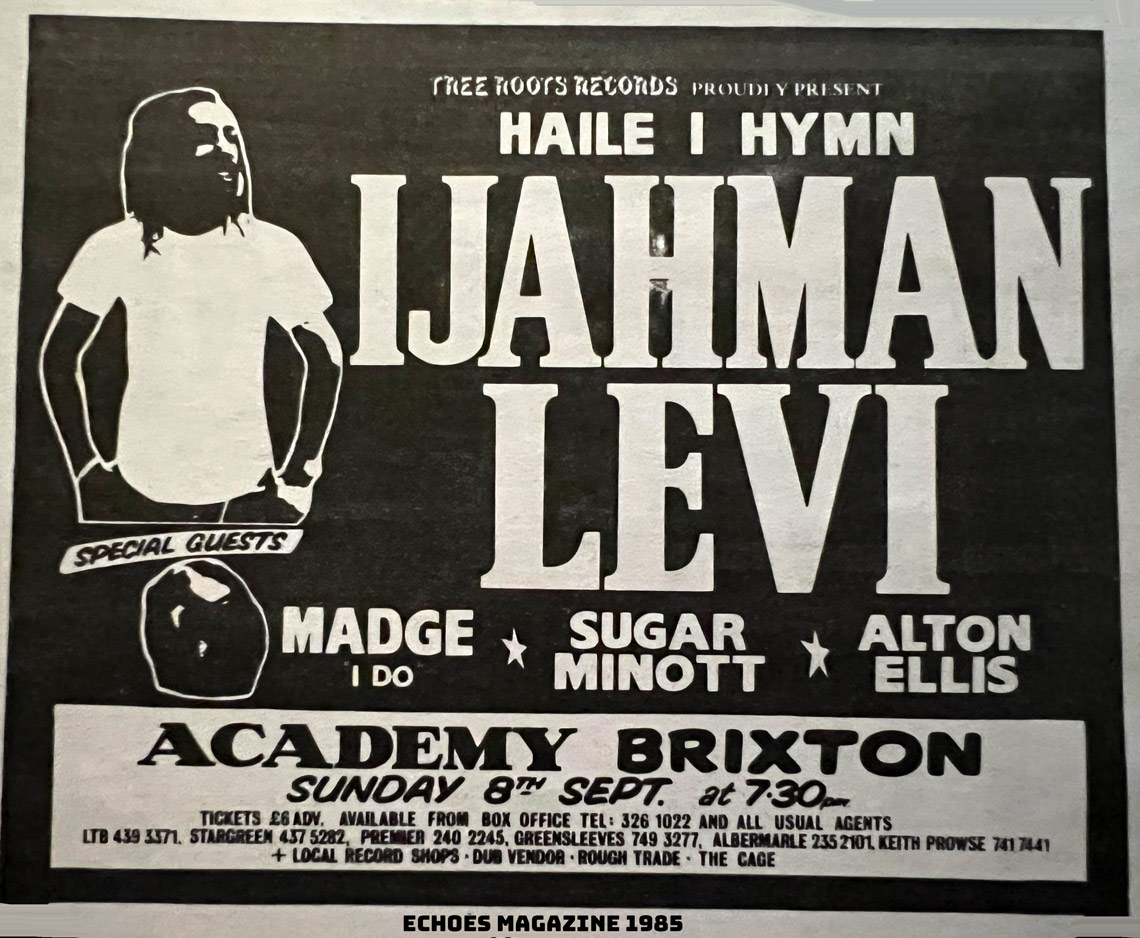
So for most of your career you've been singing roots rock reggae. In the 80s you went through a period of singing in a Lovers style. But in the early 90s on the album Gemini Man you redid Jah Heavy Load in a conscious dancehall style on an uptempo rhythm.
Yeah, Jah Heavy Load is always a part of me. So in that time there I decided to instead of using natural drums I used the drum machine. So that's why that one sounded that way. But it's just me. Just IJahman. I just did something again and did it over. But I know that what I've done is acceptable and I give thanks.
You said you don’t really like cover versions, but you did sing a cover album of Bob Marley in 1995. You also put out a single In Memory Of Bob Marley in 2016. You knew Bob Marley well from Trenchtown days. What did Bob Marley mean to you?
Bob Marley is a spirit right now that manifests with me regularly. I could write a book about me and Bob right now. And it would make sense because Bob has visioned me many, many times and I know what the vision means. I'm waiting for some of it to manifest to the world. I started doing it already. But it will take time to fulfill. Because for instance I've already sang around eight years ago to the world that I received two letters from Bob Marley. If you watch my show in Rototom I mentioned the two letters from Bob Marley. This is reality and where vision is concerned, hear what the Bible said “without vision the people perish”. So I cannot lie on a vision. If you lie on a vision you don't get no vision. So I have to deal with the truth.
And Bob visited me many, many times, talk to me, we sit down and play guitar together, in my vision. Sing together. Many, many things that I don't reveal to the world yet. But it is in my songs. For instance there are two letters that I get from Bob. There are many, many, many interpretations. One letter was white and the other letter was yellow. Remember my first album for Island is white Haile I Hymn. And remember the second album I did for Island Are We A Warrior this is yellow. Also who I worked with on the contract is a white man. Remember that also. Number 2 yellow is money. Is gold.
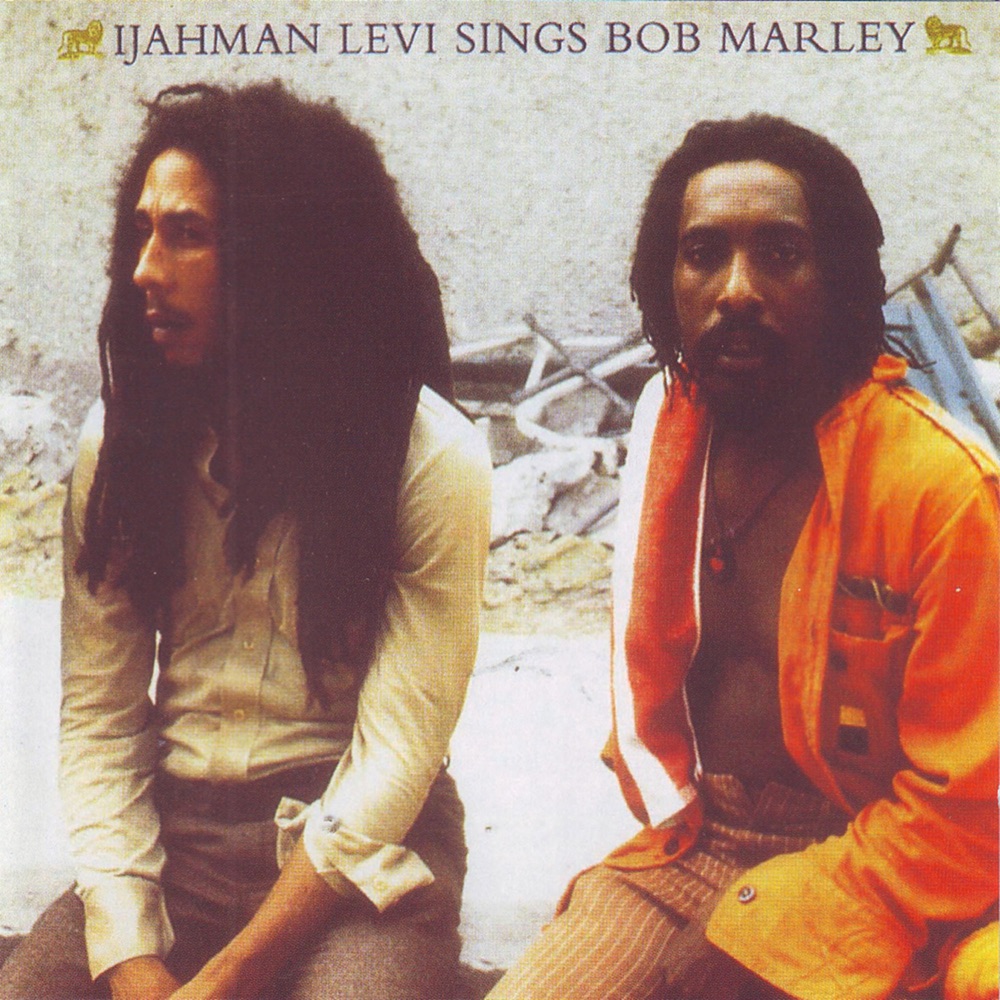
Are you aware of the reggae scene in the US Virgin Islands? Bands like Midnite and artists like Dezarie? When I was listening to your music preparing for this interview it struck me that your singing style, and your deep topics on quite long rhythms might have been an influence on that scene.
Well, I'm glad you say that I could be the influence, (laughs) I don't know that kind of music. The only group that I know from that side is Midnite. Because I can tell you that the last No Logo I performed on, I can remember after I finished this gentleman came to my van, the one that we travel in. And he came in there and he sat down beside me and looked at me for at least half an hour. Just staring at me. And I said to myself “Why is this person looking at me like that?” Nevertheless I didn't make a fuss. And then he said to me “My name is Vaughn”. I said “Vaughn who?” And he said “I'm in the group named Midnite”. I said “Okay. I don't know anything about that”. But the way he just came and sat down and was looking at me and staring at me I have to question myself “Why is he looking at me like that?”
Anyhow, a couple of years after there is a gentleman that works with VP his name is Donovan. He said “IJahman I'd like to make a combination album with you and a group named Midnite”. He wanted to make an album half with Midnite and half IJahman. So then I started to listen to Midnite. Well, I see their direction but I just didn't please about that so I told him I don't want to make no album that way. So we left it as it is. But I know about Midnite. I don't know about other groups and I don't know about reggae on that side of the world.
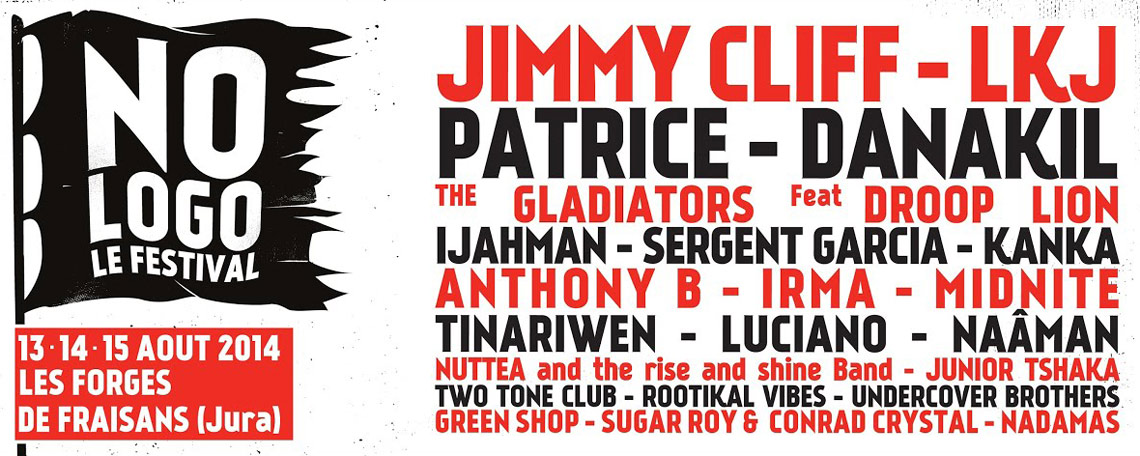
You're about to start your European tour. Are you looking forward to it?
I'm looking forward to it. I've never had such a long tour before. So it's a challenge. At my age! (laughs) I give thanks that my promoter and my agent, Michel, is doing a wonderful job. All I can say is I'm looking forward to it. I'm having no problems right now.
You're visiting a lot of places. Which countries are you looking forward to visiting?
Every country, everywhere. I guess France is my favourite because I've been there so many times. But also I've not been to Germany in a long time. Barcelona, I've never been to Barcelona, I think. Spain. I'm looking forward to everything.
And what about London, your old place?
Oh London! Because London is where my whole career started to a certain level. I'm not really a stranger there in England, being a citizen. Even though the generation gap changed. I've been to London last week and I don't recognise anybody. Believe you me. Listen, the place changed man. England changed. London to me is like Jamaica where entertainment is concerned. You can't fool them. You can take chances in other countries but in London or Jamaica you don't joke with them. But I still believe that I'm good enough to do what I have to do in London.
The tour kicks off with the Reggaeville Easter Special, six dates in Cologne, Munich, Berlin, Dortmund, Hamburg and Amsterdam. You're sharing the bill with Culture, who were your contemporaries but also two younger artists, Mortimer and Romain Virgo. Are you familiar with them and are you looking forward to performing with them?
I'm looking forward to performing with them but I'm not familiar with them because I've never met them. But of course I see them on TV. Romain Virgo, I know his music. Because he sings a lot of music. Because he's not doing the dancehall business. He's a lovers rock artist but he sings roots and culture, same way, that's nice. But personally we have never met.
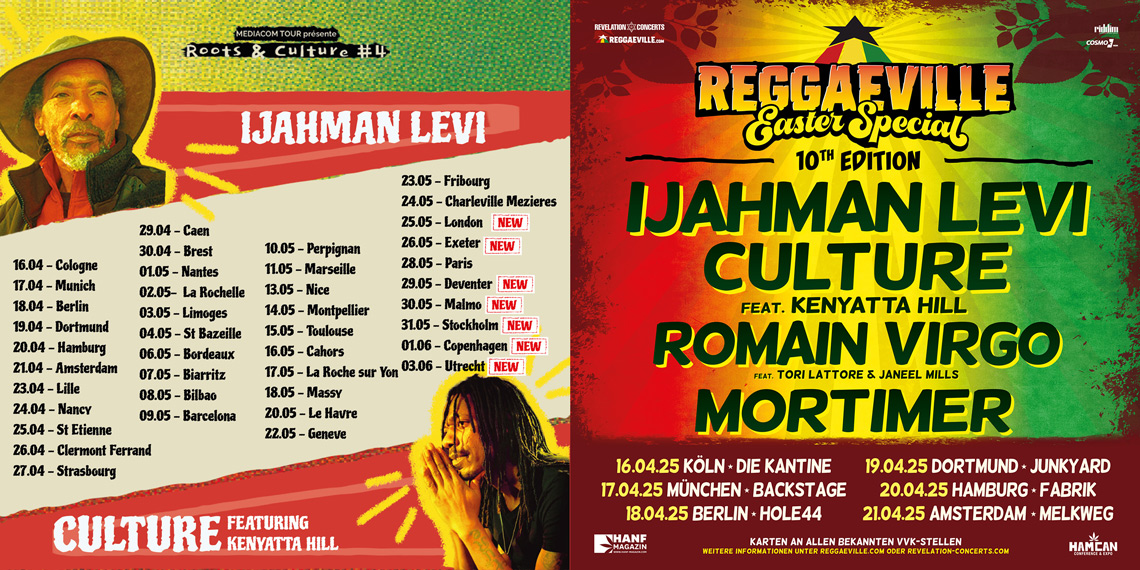
Who is in your band for the European tour? You mentioned Kubix on guitar.
Yeah, give thanks for that. Kubix, beautiful guitarist. You have Muctar who is on keyboard. I see him as my little leader of the posse. Because when I want to put things together, organize and meet people, any message, whatever it is, he's the one that communicates with me. So Muctar he plays keyboards. Beautiful person. He is also a Levi. Spiritually. Then you have Sam, who to me is the best drummer I've ever worked with. And I've played with a lot of drummers. But nobody plays drums like Sam. He's a beautiful person also. Then you have Mr Johnson, the other keyboardist. And by the way, in the band I'm having a bassman named Dominic. He played with me before and I think also he used to play with Max Romeo a lot. Because the other bassman that I normally have is not available.
But I'm very happy to say that I am with a set of musicians right now that appreciate me, respect me, and likewise I appreciate them and respect them. We just have wonderful vibes together. And I know it's going to be a positive tour because everyone right now is working, and is moving on my level. I like to say my level because I'm the leader of the whole programme. And I'm on a special level right now and I think they're also feeling the same vibes now so it's wonderful.






